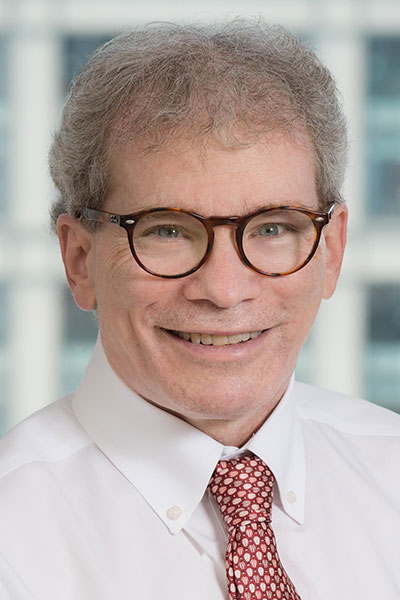Patients with diabetes and atherosclerotic cardiovascular disease (ASCVD), may face residual risk of cardiovascular disease despite managing crucial risk factors such as A1C, LDL cholesterol, and blood pressure.
“For both type 1 and type 2 diabetes, ASCVD is the number one cause of mortality, and because of that, it needs to take on a primary focus for clinicians and their patients,” said Irl Hirsch, MD.

During an 85th Scientific Sessions symposium, a panel of physician-scientists will discuss cardiovascular risks faced by people with diabetes and ASCVD, as well as clinical considerations not currently addressed in standard treatment guidelines. Addressing the Residual Cardiovascular Risk in People with Diabetes and ASCVD will be held on Saturday, June 21, from 8:00–9:30 a.m., in Room W184 A–D of the McCormick Place Convention Center. On-demand access to recorded presentations will be available to registered participants from June 25–August 25, following the conclusion of the 85th Scientific Sessions.
Dr. Hirsch, Professor and Diabetes Treatment and Teaching Chair at the University of Washington (UW) School of Medicine and UW Medicine Diabetes Institute, will open the presentations with a discussion on A1C management in patients with diabetes and ASCVD.
“We continue to learn more about hypoglycemia as far as cognitive function is concerned, but it may be actually a bigger issue in terms of ASCVD, including stroke,” Dr. Hirsch said. “There are emerging data on the dangers of hypoglycemia, including a very important paper that came out recently showing an increase in cardiovascular events after a severe hypoglycemia event. So, we may need to be more wary about how tightly we treat the blood glucose in somebody either at high risk for or with known cardiovascular disease.”
Related to that, he said, is the potential role of glucose variability.
“We don’t have definitive data on glucose variability, but it continues to be noted in both the finger-stick glucose and the CGM (continuous glucose monitor) glucose as an independent risk factor,” Dr. Hirsch said. “It would be very difficult to prove this in a prospective study, but it’s very likely an important risk factor.”
Dr. Hirsch said it is also important for clinicians to understand when an A1C measurement may not accurately predict glycemic management, which can potentially lead to errors in diabetes management. In a study published in 2021, Dr. Hirsch and his colleagues showed that 50% of individuals included in the study were discordant by 0.5%, and 22% of individuals were discordant by 1%.
“There are many reasons why the A1C can be discordant, but I think the take-home point for clinicians is that, while a person’s A1C may look like it’s being controlled, based on lab A1C, once you put a CGM on them, you see it’s not controlled at all,” Dr. Hirsch said. “The bottom line is we need to do a better job in controlling the known risk factors of atherosclerotic cardiovascular disease, which includes effective glycemic control.”
Also during the session, Vanita Aroda, MD, Director of Diabetes Clinical Research in the Division of Endocrinology, Diabetes and Hypertension at Brigham and Women’s Hospital, and Associate Professor of Medicine at Harvard Medical School, will discuss new insights into the role of inflammation in ASCVD and approaches to detection and management. Mohammad Al-Sofiani, MBBS, MSc, Assistant Professor of Endocrinology, Diabetes, and Metabolism at King Saud University, Riyadh, Saudi Arabia, and Adjunct Assistant Professor at Johns Hopkins University, will discuss lipid management in people with diabetes once their LDL goal has been reached.

Watch the Scientific Sessions On-Demand after the Meeting
Extend your learning on the latest advances in diabetes research, prevention, and care after the 85th Scientific Sessions conclude. From June 25–August 25, registered participants will have on-demand access to presentations recorded in Chicago via the meeting website.

